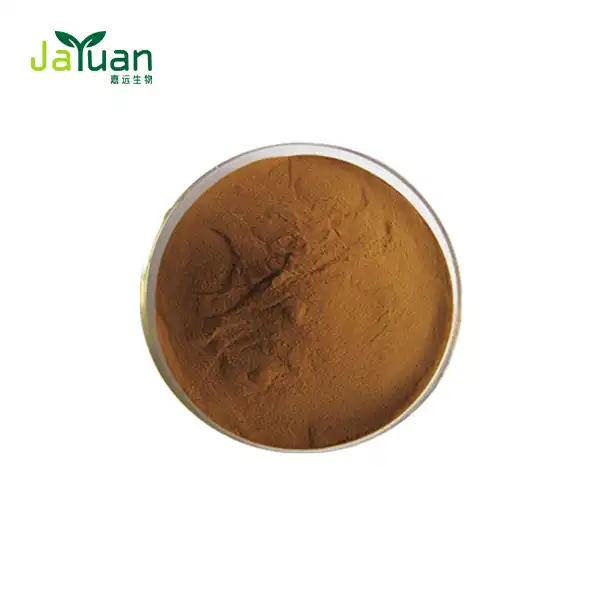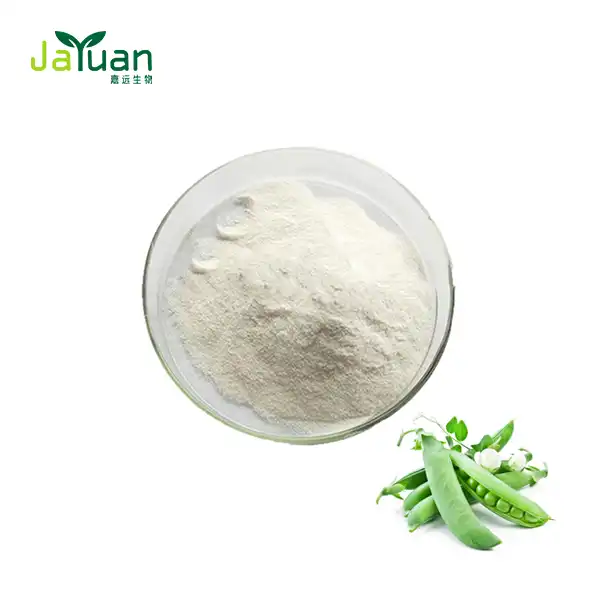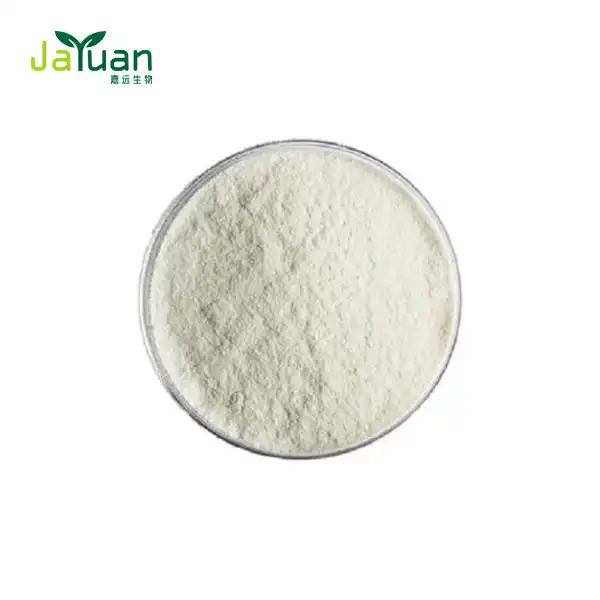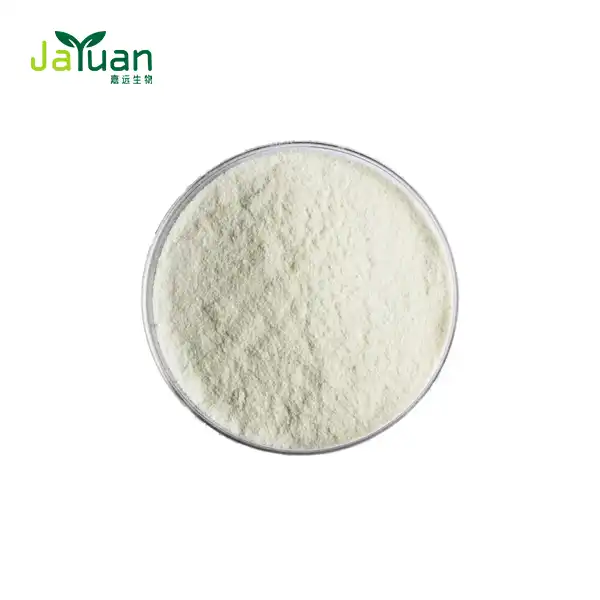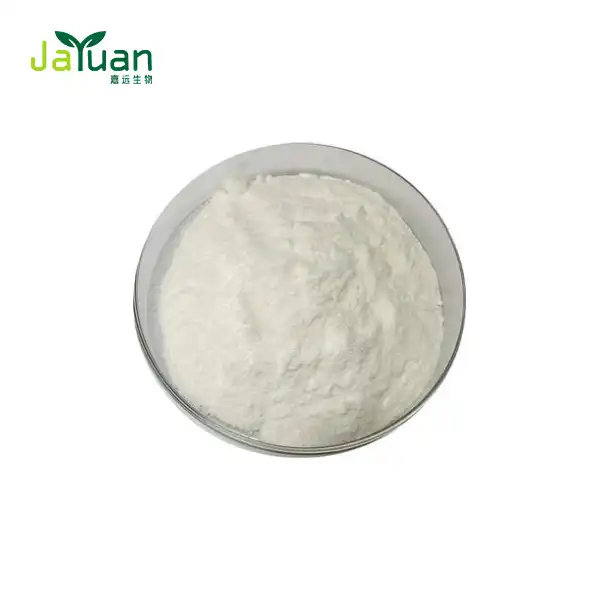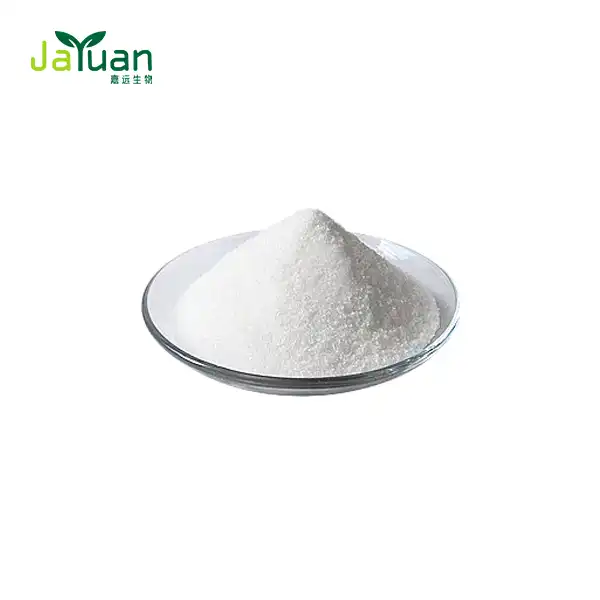How do abalone peptides affect collagen synthesis?
Abalone peptides have gained significant attention in the skincare and nutraceutical industries due to their potential effects on collagen synthesis. These marine-derived peptides, extracted from the protein-rich flesh of abalone, have shown promising results in promoting skin health and combating signs of aging. In this comprehensive exploration, we'll delve into the fascinating world of abalone peptides and their impact on collagen production, a crucial component of skin structure and elasticity.

Do abalone peptides stimulate collagen production in skin cells?
The short answer is yes, abalone peptides have demonstrated the ability to stimulate collagen production in skin cells. This effect is particularly noteworthy because collagen is the most abundant protein in our bodies, playing a vital role in maintaining skin structure, elasticity, and overall health.
Research has shown that abalone-derived peptides can interact with fibroblasts, the cells responsible for producing collagen in the skin. When these peptides come into contact with fibroblasts, they trigger a cascade of cellular events that ultimately lead to increased collagen synthesis.
One study conducted on human dermal fibroblasts revealed that exposure to abalone peptides resulted in a significant upregulation of genes associated with collagen production. This genetic activation translated into a measurable increase in the amount of collagen produced by the cells.
Moreover, abalone peptide powder has been found to not only stimulate the production of new collagen but also to help protect existing collagen from degradation. This dual action makes abalone peptides a particularly intriguing ingredient for anti-aging skincare formulations and supplements.
It's important to note that the efficacy of abalone peptides in stimulating collagen production can vary depending on factors such as the specific peptide composition, concentration, and the method of application or consumption. However, the overall trend in scientific literature points towards a positive correlation between abalone peptide use and enhanced collagen synthesis in skin cells.
Abalone peptides and type I/III collagen activation
When discussing the effects of abalone peptides on collagen synthesis, it's crucial to understand that not all collagen is created equal. There are multiple types of collagen in the human body, each with specific roles and distributions. In the context of skin health, type I and type III collagen are particularly significant.
Type I collagen is the most abundant form in the skin, providing structure and strength. It's essential for maintaining skin firmness and preventing sagging. Type III collagen, on the other hand, is often associated with skin elasticity and is more prevalent in young, healthy skin.
Abalone peptides have shown a remarkable ability to activate the production of both type I and type III collagen. This dual activation is particularly beneficial for skin health and anti-aging efforts. Here's how abalone peptides influence these specific collagen types:
Type I Collagen Activation:
- Abalone peptides have been observed to stimulate fibroblasts to produce more type I collagen.
- This increase in type I collagen can lead to improved skin firmness and a reduction in the appearance of fine lines and wrinkles.
- The activation of type I collagen also contributes to better wound healing and skin repair processes.
Type III Collagen Activation:
- Studies have shown that abalone peptides can also boost the production of type III collagen.
- Enhanced type III collagen synthesis contributes to improved skin elasticity and resilience.
- The increase in type III collagen is particularly beneficial for maintaining a youthful skin appearance and texture.
The balanced activation of both type I and type III collagen by abalone peptides is one of the key reasons why these marine-derived compounds are gaining popularity in anti-aging skincare formulations. This dual action helps address multiple aspects of skin aging simultaneously, potentially leading to more comprehensive improvements in skin health and appearance.
It's worth noting that the ratio of type I to type III collagen in the skin changes as we age, with type III collagen decreasing more rapidly. The ability of abalone peptides to stimulate both types could help maintain a more youthful collagen profile in the skin, potentially slowing down visible signs of aging.
While the exact mechanisms of how abalone peptides activate these specific collagen types are still being studied, current research suggests that they may work by:
- Directly stimulating fibroblasts to produce more collagen
- Upregulating genes associated with collagen synthesis
- Providing building blocks (amino acids) necessary for collagen production
- Protecting existing collagen from degradation by inhibiting enzymes that break down collagen
The multifaceted approach of abalone peptides in activating both type I and type III collagen makes them a versatile and promising ingredient for those seeking to improve their skin's overall health and appearance.

Mechanisms of abalone peptides in promoting collagen biosynthesis
The mechanisms by which abalone peptides promote collagen biosynthesis are complex and multifaceted. Understanding these processes can provide valuable insights into why these marine-derived compounds are so effective in supporting skin health and combating signs of aging.
Stimulation of Fibroblast Activity:
One of the primary mechanisms through which abalone peptides promote collagen biosynthesis is by directly stimulating fibroblasts, the cells responsible for producing collagen in the skin. When abalone peptides come into contact with fibroblasts, they can trigger a series of intracellular signaling pathways that ultimately lead to increased collagen production.
This stimulation occurs through several potential pathways:
- Activation of specific cell surface receptors that trigger collagen synthesis
- Upregulation of genes associated with collagen production
- Enhancement of fibroblast proliferation, leading to a greater number of collagen-producing cells
Provision of Building Blocks:
Abalone peptides are rich in amino acids, the fundamental building blocks of proteins, including collagen. By providing a readily available source of these essential components, abalone peptides can support and enhance the natural collagen synthesis process in the skin.
The specific amino acid profile of abalone peptides is particularly well-suited for collagen production, containing high levels of glycine, proline, and hydroxyproline - key amino acids in the collagen structure.
Antioxidant Properties:
Many abalone peptides exhibit antioxidant properties, which play a crucial role in protecting existing collagen from degradation. Oxidative stress, caused by factors such as UV radiation and environmental pollutants, can damage collagen fibers and accelerate skin aging.
By neutralizing harmful free radicals, abalone peptides help preserve the integrity of existing collagen while supporting the production of new collagen. This dual action contributes to overall skin health and appearance.
Modulation of Enzyme Activity:
Abalone peptides have been found to influence the activity of certain enzymes involved in collagen metabolism. Specifically, they may inhibit matrix metalloproteinases (MMPs), enzymes responsible for breaking down collagen and other extracellular matrix proteins.
By reducing the activity of these collagen-degrading enzymes, abalone peptides help maintain higher levels of collagen in the skin, contributing to improved skin structure and elasticity.
Activation of TGF-β Signaling:
Some studies suggest that abalone peptides may activate the transforming growth factor-beta (TGF-β) signaling pathway. TGF-β is a key regulator of collagen synthesis and plays a crucial role in wound healing and tissue repair.
By enhancing TGF-β signaling, abalone peptides may indirectly stimulate collagen production and promote overall skin health.
Epigenetic Modulation:
Emerging research indicates that certain peptides, including those derived from abalone, may have epigenetic effects. This means they could potentially influence gene expression related to collagen synthesis without altering the underlying DNA sequence.
Such epigenetic modulation could lead to long-term changes in collagen production, potentially offering more sustained benefits for skin health and appearance.
Enhancement of Extracellular Matrix Components:
While collagen is a primary focus, abalone peptides may also promote the synthesis of other extracellular matrix components, such as elastin and hyaluronic acid. These components work synergistically with collagen to maintain skin structure, hydration, and elasticity.
By supporting the production of these complementary elements, abalone peptides contribute to a more comprehensive improvement in skin health and appearance.
Conclusion
The mechanisms by which abalone peptides promote collagen biosynthesis are diverse and interconnected. From direct stimulation of fibroblasts to the provision of essential building blocks and protection against collagen degradation, these marine-derived compounds offer a multifaceted approach to supporting skin health and combating signs of aging.
As research in this field continues to advance, we may uncover even more fascinating ways in which abalone peptides influence collagen synthesis and overall skin health. This ongoing exploration underscores the potential of these marine-derived compounds as valuable ingredients in skincare formulations and nutritional supplements aimed at promoting skin health and vitality.
The multifaceted approach of abalone peptides in promoting collagen biosynthesis makes them a promising ingredient for those seeking to improve their skin's overall health and appearance. Whether incorporated into topical skincare products or consumed as dietary supplements, abalone peptides offer exciting possibilities for supporting skin health and combating signs of aging.
If you're interested in learning more about abalone peptides and their potential applications in skincare or nutraceuticals, we encourage you to reach out to our team at Xi'an Jiayuan Bio-Tech. Our experts are always ready to discuss the latest research and provide insights into how these remarkable marine-derived compounds can be incorporated into your products. Contact us at sales@jayuanbio.com, sales1@jayuanbio.com to explore the possibilities of abalone peptides for your business.
References
1. Kim, S. K., & Mendis, E. (2006). Bioactive compounds from marine processing byproducts–a review. Food Research International, 39(4), 383-393.
2. Wang, L., An, X., Yang, F., Xin, Z., Zhao, L., & Hu, Q. (2008). Isolation and characterisation of collagens from the skin, scale and bone of deep-sea redfish (Sebastes mentella). Food Chemistry, 108(2), 616-623.
3. Zhuang, Y., Sun, L., & Li, B. (2012). Production of the angiotensin-I-converting enzyme (ACE)-inhibitory peptide from hydrolysates of jellyfish (Rhopilema esculentum) collagen. Food and Bioprocess Technology, 5(5), 1622-1629.
4. Ehrlich, H., Wysokowski, M., Żółtowska-Aksamitowska, S., Petrenko, I., & Jesionowski, T. (2018). Collagens of poriferan origin. Marine Drugs, 16(3), 79.
5. Blunt, J. W., Copp, B. R., Keyzers, R. A., Munro, M. H., & Prinsep, M. R. (2017). Marine natural products. Natural Product Reports, 34(3), 235-294.
6. Pallela, R., Na-Young, Y., & Kim, S. K. (2010). Anti-photoaging and photoprotective compounds derived from marine organisms. Marine Drugs, 8(4), 1189-1202.

